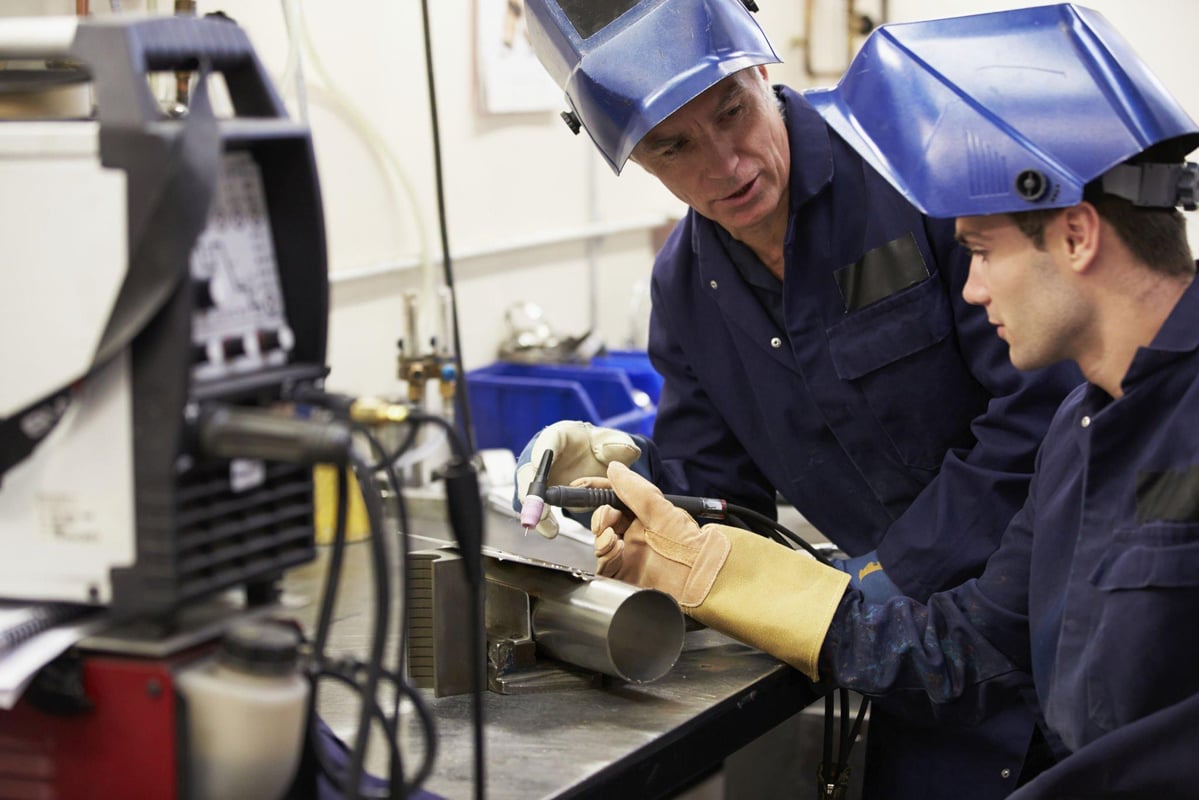Welding schools near me

Welding, as a fabrication method, brings together materials, often metals or thermoplastics, through the application of intense heat that melts the components, allowing them to fuse upon cooling. This process stands apart from techniques like brazing and soldering, which operate at lower temperatures and do not involve melting the base metal.
On Dreambound, there are 152 welding programs, 55 upcoming classes, and the average class length is 10 months.
Let's hear directly from one of our students, Shanika Inman, about their experience with Dreambound:
"My experience using the Dreambound platform was great. I really liked how they have different classes you can choose from. I have been praying and wanting to go back to school, but I just did not know where to start. Then I came across Dreambound, and it had everything that I needed. So, I know that this is a sign for me to start my career and to get back to what I used to love."
How long do welding training programs take to complete?
The duration of welding training programs can vary widely depending on factors such as the specific program, the level of expertise being pursued, and the intensity of the training. Typically, an associate degree program in welding lasts 2 years, while a certification program usually takes 6 to 18 months to complete. However, there are a few training providers offering certificates that can be completed in as few as 10 months.
Welding classes by City
In order to help you find welding class, at Dreambound we've gathered the most comprehensive list of welding classes in the US. Below you can find a list of welding classes, organized by city. If you don't see your city listed, you can always search by zipcode.
How to become a Welder
We know taking the first step to becoming a welder can be scary. That's why we're trying to demystify the process by writing guides on how to become a welder. Since State process or requirements may vary, we've written separate guides for each state:
- How to Become a Welder in Alabama
- How to Become a Welder in Alaska
- How to Become a Welder in Arizona
- How to Become a Welder in Arkansas
- How to Become a Welder in California
- How to Become a Welder in Colorado
- How to Become a Welder in Connecticut
- How to Become a Welder in Delaware
- How to Become a Welder in District of Columbia
- How to Become a Welder in Florida
- How to Become a Welder in Georgia
- How to Become a Welder in Hawaii
- How to Become a Welder in Idaho
- How to Become a Welder in Illinois
- How to Become a Welder in Indiana
- How to Become a Welder in Iowa
- How to Become a Welder in Kansas
- How to Become a Welder in Kentucky
- How to Become a Welder in Louisiana
- How to Become a Welder in Maine
- How to Become a Welder in Maryland
- How to Become a Welder in Massachusetts
- How to Become a Welder in Michigan
- How to Become a Welder in Minnesota
- How to Become a Welder in Mississippi
- How to Become a Welder in Missouri
- How to Become a Welder in Montana
- How to Become a Welder in Nebraska
- How to Become a Welder in Nevada
- How to Become a Welder in New Hampshire
- How to Become a Welder in New Jersey
- How to Become a Welder in New Mexico
- How to Become a Welder in New York
- How to Become a Welder in North Carolina
- How to Become a Welder in North Dakota
- How to Become a Welder in Ohio
- How to Become a Welder in Oklahoma
- How to Become a Welder in Oregon
- How to Become a Welder in Pennsylvania
- How to Become a Welder in Rhode Island
- How to Become a Welder in South Carolina
- How to Become a Welder in South Dakota
- How to Become a Welder in Tennessee
- How to Become a Welder in Texas
- How to Become a Welder in Utah
- How to Become a Welder in Vermont
- How to Become a Welder in Virginia
- How to Become a Welder in Washington
- How to Become a Welder in West Virginia
- How to Become a Welder in Wisconsin
- How to Become a Welder in Wyoming

Marce Arnejo is part of the Sales team at Dreambound. Her role involves seeking out schools and institutions to provide valuable opportunities for students seeking a career in the healthcare sector. Beyond her professional life, Marce is passionate about music and gaming. She finds joy in exploring various genres of music and using gaming to unwind and immerse herself in virtual worlds. Her diverse interests enrich her personal life and contribute to her work by bringing new ideas and creativity.




